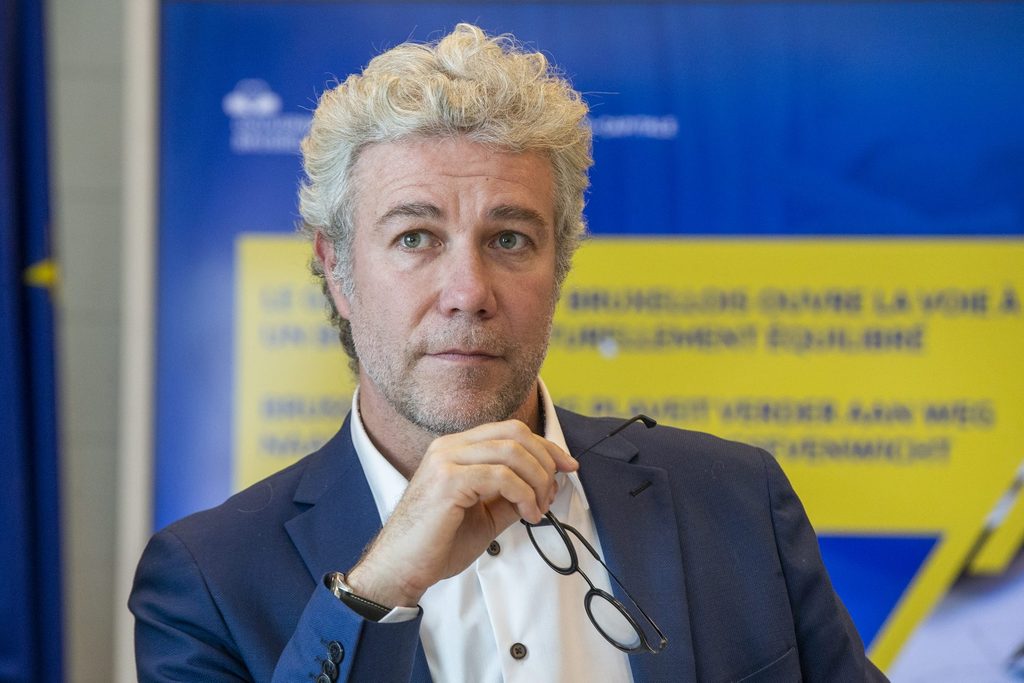The Brussels Environment Minister Alain Maron announced on Monday that Belgium will not submit a draft proposal of its climate and energy plan to the European Union, because of conflicts with the Flemish Government's environmental targets.
National climate and energy plans outline EU Member States' strategies to reduce CO2 emissions and increase energy efficiency. First compiled in 2019 for the 2021-2030 period, Member States are now required to present updated plans by 30 June 2023.
Brussels Minister Maron, who heads the Belgian National Climate Commission, stated that he will not submit the plan because the lower environmental targets of the Flemish Government bring down Belgium's total average, Le Soir reported.
While the Brussels, Wallonia and federal governments fall in line with the reduction target that the EU set for Belgium, Flanders aims lower and refuses to budge.
According to EU standards, Belgium should reach a 47% reduction in greenhouse gas emissions by 2030, compared to the country's 2005 emissions. This reduction applies to certain sectors, like agriculture, buildings, transport, etc.
The Flemish climate plans, on the other hand, foresee a 40% decrease in emissions, to the great disappointment of the Brussels Environment Minister.
This would allow Belgium to reduce its emissions by 42.6%,” Minister Maron told Le Soir. "I do not think it is reasonable for Belgium to send the Commission a plan that is so out of step with European objectives."
The 30 June deadline applies to a draft proposal of the climate-energy plans, while the final document is due in the summer of 2024.
For Flemish Environment Minister, Zuhal Demir, the hard stance taken by Mr. Maron and the other Belgian entities is an affront.
"The other governments refused to accept the Flemish climate plan. They have put the knife to the throat of Flemish democracy, said Minister Zuhal Demir, of the Flemish nationalist party N-VA. "It is unprecedented".
'Political posturing'
The Brussels Environment Minister warned that if countries slow down their green transition efforts, there will be harmful consequences to the planet. Maron further questions the Flemish government's position, due to Flanders' particular exposure to the nefarious effects of the climate crisis.
The Brussels Environment Minister also notes that the region has enough expertise and financial means to draw up a more ambitious plan, but refuses to do so out of "political posturing".
"If Flanders were an independent country, it would undoubtedly have to meet objectives much higher than the 47% target, if we were to follow the EU's calculation methods for the distribution of the effort between the States," Maron insisted.
In European politics, Belgium has regularly had its green ambitions tempered down by the more conservative Flemish stance, which diverges from the consensus between Wallonia and Brussels. If the Belgian regions do not all agree on a measure, then Belgium cannot support it in the European arena and often ends up abstaining from votes.
Most recently, Belgium held back from supporting the embattled EU Nature Restoration Law, because Flanders' Environment Minister, Zuhal Demir did not support it. The Belgian Prime Minister, however, expressed similar concerns as Minister Demir, to the outrage of his Socialist and Green coalition partners.
Recently, the Flemish Environment Minister asked the European Commission to postpone the debate on greenhouse gas reduction targets for 2040

